June 7, 2025 | 18:01 GMT +7
June 7, 2025 | 18:01 GMT +7
Hotline: 0913.378.918
June 7, 2025 | 18:01 GMT +7
Hotline: 0913.378.918
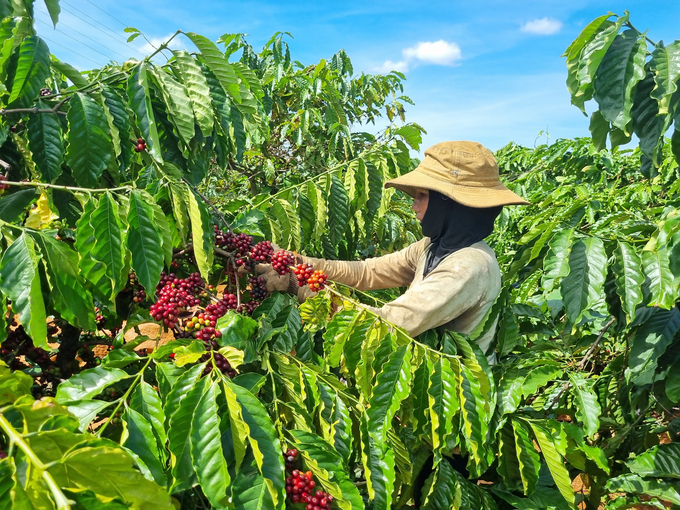
Gia Lai is aiming to build brands of sustainable coffee. Photo: Tuan Anh.
Located in the center of the Central Highlands, Gia Lai has a diverse climate and large area suitable for large-scale agricultural development. The province now has more than 845,000 ha of agricultural land, growing many crops of high economic value, including coffee. This is considered one of Gia Lai’s advantages that attract the attention of many domestic and foreign investors.
The report of Gia Lai Sub-Department of Crop Production and Plant Protection shows that the current coffee area in the province is 98,728 ha. The average yield is over 3 tons/ha, and the total coffee output is 267,428 tons. Coffee products are Gia Lai’s main export agro-products with an export turnover of USD 490 million in 2022, accounting for nearly 71% of the province's total agro-product export turnover.
According to the province's agricultural restructuring plan for the 2021 - 2025 period, Gia Lai will not expand the coffee production area, maintaining a stable figure of 98,000 - 100,000 ha. The province pays keen attention to making sure that the development of the coffee industry does not encroach on forest land. Gia Lai will also focus on improving the quality and value of coffee through promoting brand building, aiming toward potential export markets.
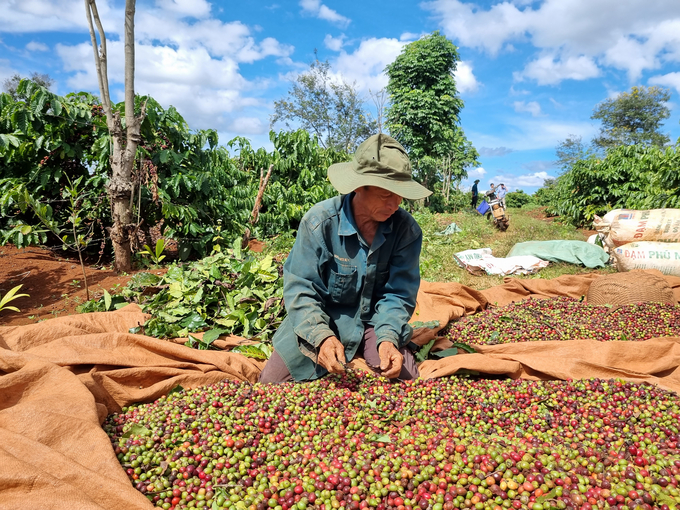
Coffee growers are increasingly focusing on quality in order to increase product value. Photo: Tuan Anh.
Le Van Thanh, Chairman of the Board of Directors of Ia Mo Nong Agricultural Production, Trade and Service Cooperative (Chu Pah district), said that in order to raise the value of coffee, Gia Lai needs to build growing area codes and preserve old, rare but extremely valuable coffee varieties.
In Chu Pah district, there are only about 100 ha of a coffee variety planted before 2007 which possesses very good quality. However, this coffee variety gives a small yield, only 3 tons/ha, (the average yield of coffee in Gia Lai is 4-5 tons/ha), causing people to gradually discard it and plant other high-yielding varieties. This area of coffee has decreased sharply, and it will likely be wiped out in only 2 years if no measures are taken to preserve and conserve it.
“Small units and farmers alone cannot do this. We must call for support from large enterprises and the government. These rare, old varieties don't even have a name on the market. However, if they are preserved and brought to the market, the value would be very high because this is original coffee, the remaining quintessence,” Thanh said.
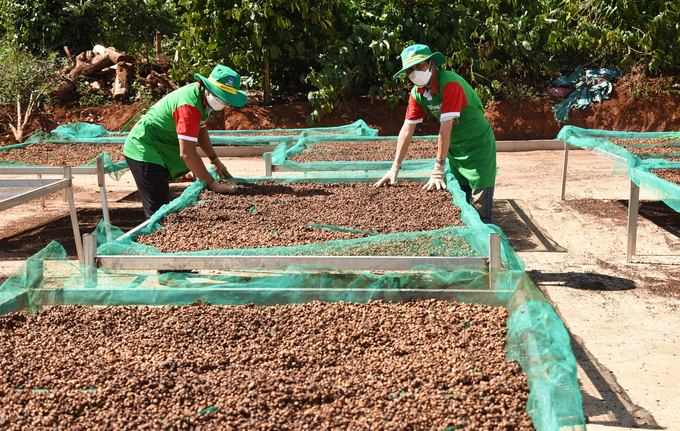
Many businesses and cooperatives in Gia Lai are focusing on deep processing of coffee. Photo: Tuan Anh.
For Gia Lai, when it comes to coffee, people often think of Robusta. This type of coffee is known as the "robust warrior" with the quality being praised by experts worldwide. Robusta coffee in Gia Lai has its own unique flavor and is well-known among consumers, making it a celebrity in international markets.
In recent years, apart from promoting the production of clean coffee as a way to improve the quality and value of exported green coffee products, many businesses in Gia Lai have focused on investing in building sustainable coffee processing and production networks and partly developing specialty coffee products. The aim is to penetrate potential markets both inside and outside the country. Some prime examples include Thu Ha coffee, Tamba coffee, Classic Coffee, L'amant Café, which have been present in all provinces and cities and initially exported to meticulous markets such as the USA, EU, and Japan.
Tran Xuan Khai, Director of Gia Lai Sub-Department of Crop Production and Plant Protection, said that the current area of specialty coffee in the province is 214.5 ha, with an output of 62 tons. One thing to note is that specialty coffee cannot be harvested 100% because this type of coffee requires careful selection of beans to ensure quality, so at the moment it only accounts for 3 - 12% of the total harvested output in the entire growing area.
“We are researching and giving consults on specific policies to support the development of high quality coffee and local specialty coffee. We wish to support and encourage businesses and people to invest in agroproduction development, high technology application, deep processing of coffee products. Focusing on these fields will help coffer producers meet the requirements of export and domestic market,” said Director Khai.
Translated by Samuel Pham
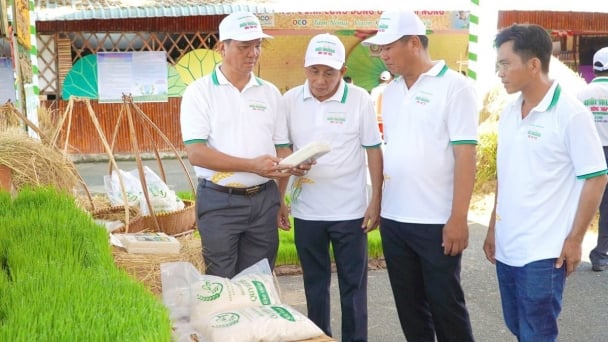
(VAN) Dong Thap has launched a meeting in response to the Action Month for the Environment under the theme 'Live Green - Join Hands for a Green Economy' at Tram Chim National Park.

(VAN) The ocean has the capacity to absorb millions of tons of carbon, provided that mangrove forests, coral reefs, and biodiversity are protected.
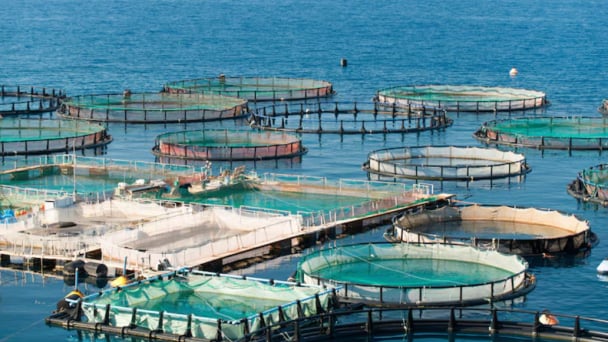
(VAN) Technology is redrawing the map of Vietnamese aquaculture: more modern, greener, and more sustainable.

(VAN) Novel process harnesses machine learning to reveal groups of genes that determine how efficiently plants use nitrogen.

(VAN) Several scientists and farmers are experimenting with soil treatment in some key durian-growing regions such as Cai Lay (Tien Giang), Dak Song, Gia Nghia, and Dak R’lap (Dak Nong).
/2025/05/25/4127-3-073637_820.jpg)
(VAN) Thanks to the promotion from an FAO-implemented project, vegetable production in greenhouses in Moc Chau has seen strong development, from 1.5 hectares in 2021 to nearly 50 hectares in 2024.

(VAN) FAO has recently supported USD 140,000 to implement the project 'Risk mitigation human-animal interface risks through disease control initiatives in pig farming.'